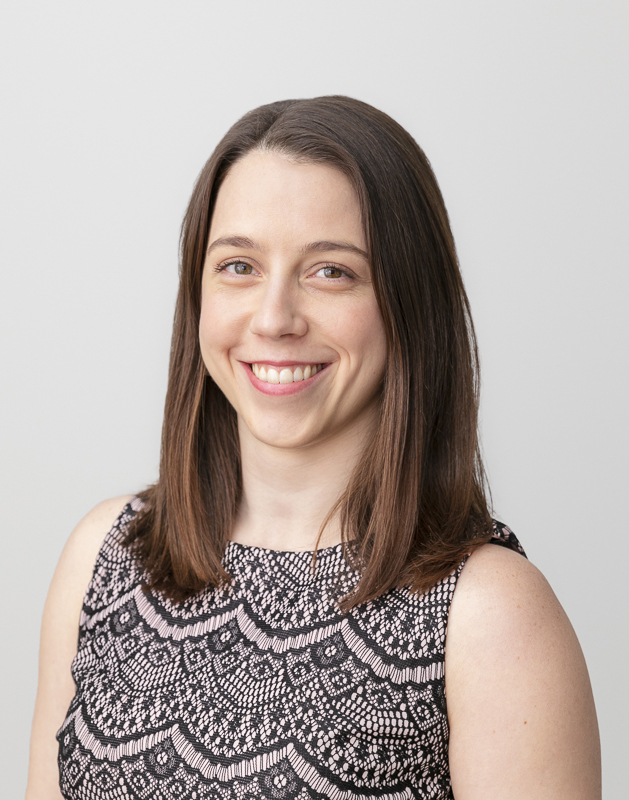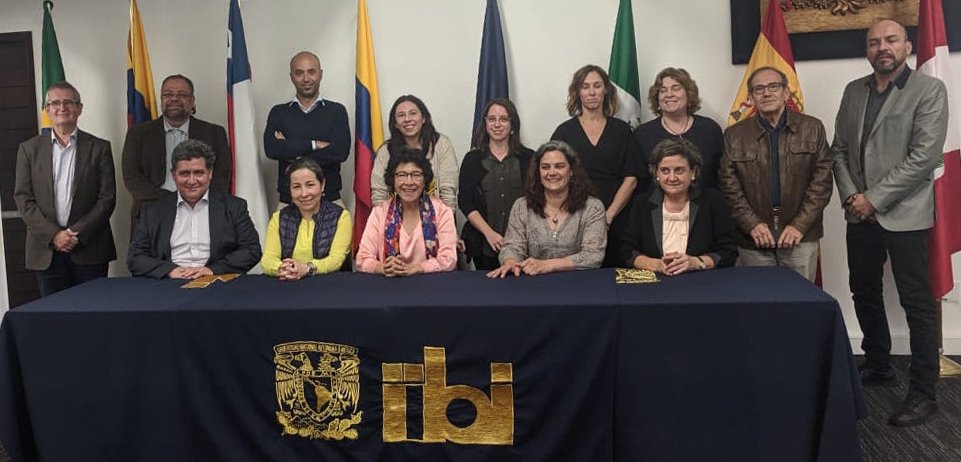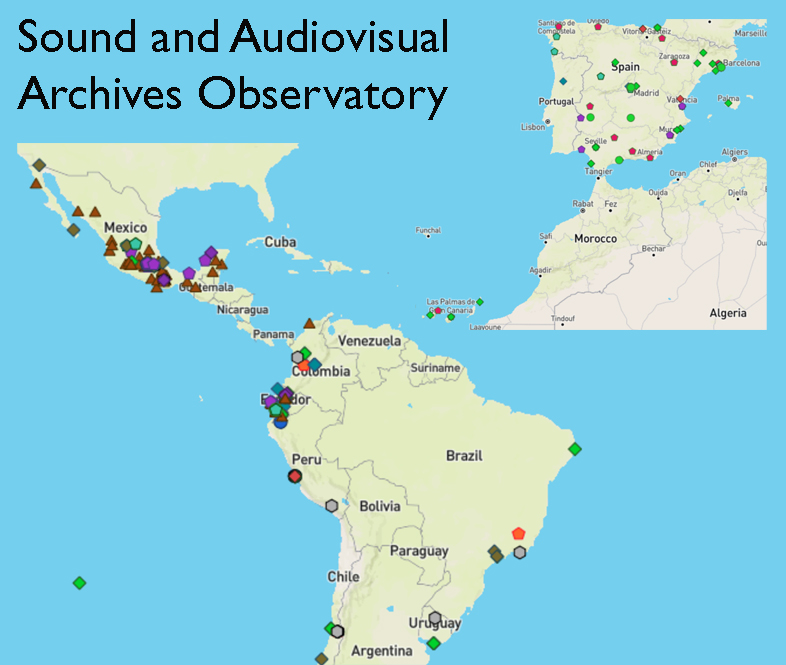Shaping the Future of Digital Preservation in Ibero America
December 12, 2019
 This post is by Pamela Vizner Oyarce, AVP Consultant and RIPDASA member. Pamela has participated in RIPDASA since its creation and is actively contributing presentations at international conferences about their efforts. With AVP’s full support, Pamela allocates much of her professional development time to supporting RIPDASA by organizing free webinars focused on audiovisual digitization and digital preservation. The webinars have been attended by over 800 people from over 100 institutions in 20 countries. She recently attended the first in-person meeting in Mexico City and has contributed this recap.
This post is by Pamela Vizner Oyarce, AVP Consultant and RIPDASA member. Pamela has participated in RIPDASA since its creation and is actively contributing presentations at international conferences about their efforts. With AVP’s full support, Pamela allocates much of her professional development time to supporting RIPDASA by organizing free webinars focused on audiovisual digitization and digital preservation. The webinars have been attended by over 800 people from over 100 institutions in 20 countries. She recently attended the first in-person meeting in Mexico City and has contributed this recap.
Highlights of the First RIPDASA Meeting

The first meeting of the Ibero-American Network of Digital Preservation for Audio and Moving Image Archives (RIPDASA, Spanish acronym) took place on November 4th and 5th, 2019 at Universidad Autónoma de México (UNAM).
RIPDASA’s goal is to share knowledge and experiences in universities, heritage institutions, private companies, and international organizations with the aim of fostering scientific research on the current state and future of our sound and audiovisual heritage. The ultimate purpose is to propose solutions to mitigate the risk of loss of these valuable assets and ensure access for generations.
The meeting was attended by the network’s researchers and the inaugural session was attended by UNAM authorities and representatives from the International Association of Sound and Audiovisual Archives (IASA) and the International Federation of Television Archives (FIAT/IFTA).
One of RIPDASA’s first projects has been to identify the location of archives in the Ibero-American region. In collaboration with the UNAM’s Geography Institute, we’ve made an online tool called the “Sound and Audiovisual Archives Observatory.” During the meeting, colleagues from the Institute demonstrated how it identifies and displays the location of institutions who own, collect, and manage sound and audiovisual archives. The project can be accessed here https://www.ripdasa.iibi.unam.mx/geoportal/home
The rest of the day was dedicated to presentations on the progress made so far by the research groups from each participant country. Although each country represents a unique context with its own characteristics and inherent diversity, it was possible to identify common themes and issues throughout the presentations. The themes we identified can be grouped in two main areas: (1) issues that are common to the archives in the region, and (2) challenges for the successful development and growth of RIPDASA.
The most common issues found in the archives that were visited and/or surveyed —not considering the lack of financial resources— are related to the following areas: limited access, difficulties processing of born-digital collections, lack of implementation of digital preservation programs, few options for skill development, low access to educational resources, and few professional networks within and between countries.
Through the presentations and conversations it was clear that RIPDASA has many challenges ahead. It is necessary to begin planning comprehensive efforts to support mitigation of some of the issues that arose. How possible implementations of these plans are carried out is still a question, nonetheless they open the door to our imagination and invite us to think creatively and collaboratively to overcome limitations.
Our efforts to identify, analyze and discuss our work is getting us closer to a more concrete understanding of the state of archives in Ibero-America. Once that is established, the network can begin to offer the right resources to build capacity in the community. This first meeting was fundamental to building a lasting collaboration and plan for the future of the network. The research teams will continue working and the results will eventually be published in a book.

From left to right, top to bottom: Miquel Térmens (Spain), José Augusto Mannis (Brazil), Matteo Manfredi (Ecuador), Jenny Guerra (Mexico), Pamela Vizner Oyarce (Chile – USA), Virginia Bazán Gil (Spain), Mónica Maronna Giordano (Uruguay), Alfonso López Yepes (Spain), Alejandro Cornejo Montibeller (Peru), Francisco Miranda Fuentes (Chile), Dora Brausin Pulido (Colombia), Perla Olivia Rodríguez Reséndiz (Mexico), Fabricia Malán Carrera (Uruguay), María Teresa Fernández Bajón (Spain).
For my continued efforts to support solutions for the network, I am using the AVP approach to consulting. It is a cross between traditional consulting (think McKinsey, Deloitte), and human-centered design, or design thinking. Design thinking is a process for creative problem solving. It is both a way of thinking and a method of doing. It is an approach that is applicable to problem solving in any field. Now that we have identified a set of common issues within RIPDASA, I am breaking them down further into a series of smaller questions presented in the format “How might we…?” As the network begins to answer these more specific questions, solutions for larger problems rise to the top. We hope to be able to have answers to some of the questions by our next meeting in Colombia in 2020.
It is a pleasure to be part of such an innovative and bold initiative for myself and AVP. The opportunity to share experiences with our colleagues from the network is invaluable to AVP’s overall mission to maximize the usability of information to the benefit of individuals, organizations, and causes. We are happy to continue supporting the network through the organization of free webinars. The first webinar series has come to an end, but we are planning more for 2020 focused on digital preservation evaluations and technical aspects.
If you would like to collaborate with RIPDASA, please get in touch with me at [email protected].
Past RIPDASA webinars are all available here: https://weareavp.aviaryplatform.com/collections/122.
Please see the full RIPDASA report at the link below for more details about the RIPDASA meeting proceedings.
